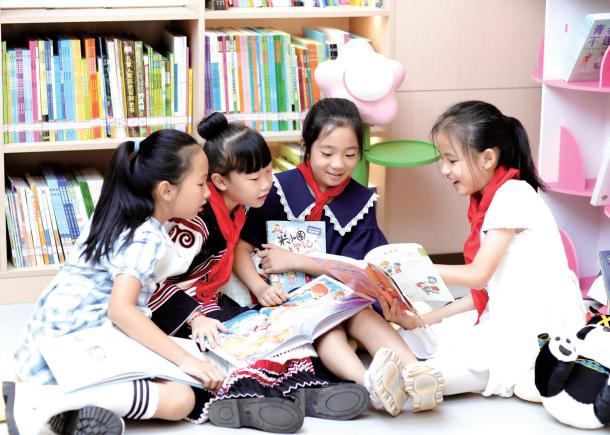News
UNESCO laureate China Children and Teenagers' Fund helps disadvantaged girls thrive through education

“We want every girl to be able to enjoy a brilliant life and build a brighter future,” said Zhu Dongyun, Deputy Secretary-General of the China Children and Teenagers' Fund (CCTF).
CCTF, founded in 1981, is awarded the UNESCO Prize for Girls' and Women's Education for its Spring Bud Project, which promotes equitable, inclusive, and quality education for girls since 1989.
Its holistic support includes subsidies for girls from low-income families from primary through to higher education, large-scale advocacy and awareness-raising, and skills building for adolescent girls including digital competences for income generation and employment.
The project also promotes mental health and supportive environments through summer camps and school-based workshops, and partnerships with women's groups and grassroots social organizations.
By the end of 2022, the project covered 31 provinces, autonomous regions and municipalities, and 56 ethnic groups, benefiting over 4 million girls.
Evolving to answer new needs
The Spring Bud Project was founded at a time when nine years of compulsory education was not yet fully universal in China and study fees and textbook costs still had to be met by families.
“Some rural families were too poor to send their girls to school. Some parents in remote areas, influenced by old cultural biases, would choose boys, not girls when they could only afford to send some of their children to school,” said Zhang Yanhong, Secretary-General of CCTF.
From 1989 to 2000, the project subsidized girls' access to education and offered practical skills training. With increased government funding to education and girls' enrolment rates at all levels of education improving, the emphasis changed.
From 2001 to 2011, it increased its focus on senior secondary and higher education in general and vocational education. In 2012 the project grew again to encompass science technology engineering and mathematics (STEM) and digital skills, education about adolescence and health care.
Innovative project features include camps to build girls’ science and technology skills, and Girl Friendly Corners which exist in over 100 schools and community spaces nationwide. Here, girls can build their art and performance skills, access psychological counselling, take part in a reading club and receive care kits containing practical items such as tampons.
Video presenting the project
Building close sustainable relationships with donors and partners
The project is resourced through corporate donation and public fundraising.
“About 60 per cent of our online donors are aged 18 to 35. This is a vivid reflection of the attention and support from China's young population foradvancing girls' education,” said Zhu Dongyun. 'We listen to their opinions and design programmes together. They are invited to visit homes and learn first-hand about girls’ lives. We know that the more we involve them, the more we can rely on their contributions. This is how the project becomes truly sustainable.'
The internet is used in a variety of ways. The website presents Spring Bud’s work and ways to join, provides information about fund use and those reached by the project, and collects data from users. Social media also keeps donors updated and connects girls taking part in the project across the country.
Lives changed and improved forever
“The project has been operating for 34 years. We have witnessed many girls come and go through the project. We are still moved by the transformation of every one of them,” said Zhang.
Yonghua Li, who was supported financially by the project in primary school, went on to Peking University to study law and then gained a full scholarship for her Master's degree.
'The Spring Bud project has been really life-changing. I got a chance to study and live a better and wonderful life,' she said.
“The project helped me find myself. Now I am studying applied psychology. My dream is to go back to my hometown and become a teacher because I want to help more people,” shared Bifen Lin, who came from a poor family and struggled with her studies and low self-esteem.
With the funding from the Prize, the CCTF plans to further expand its Dream for the Future campaign with an extra focus on girls from poor ethnic minority families, and those living in remote rural and underdeveloped areas. It also hopes to strengthen international exchanges, especially with organizations in developing countries that are aiming to advance girls' and women's education.





